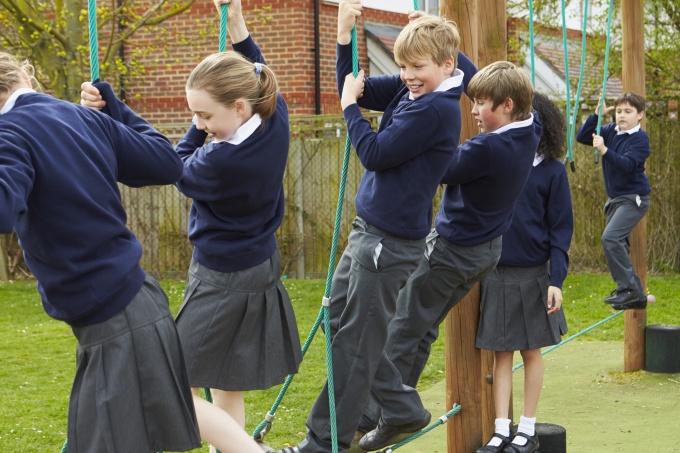This article was originally featured on the Children and Young People Now website as part of a special report into children's mental health.
ACTION
Thomas Arnold Primary School in Dagenham had embedded Thrive's whole-school approach to improving pupils' social and emotional development well before the Covid pandemic struck. Rolling out the training provider's approach among its staff proved to be a good decision by the school as the country entered a national lockdown.
“We were definitely in a much better position during Covid because we had put Thrive in place,” says Holly Pottle, the school's deputy head teacher.
“It had already made a massive positive impact on the children's behaviour and their ability to cope with things like change and conflict.
“Although Covid did have a knock-on impact academically, it did not affect our children's social and emotional development as much as that of other schools,” she explains.
The two-form entry primary school was recognised by Thrive in 2021 for its efforts in supporting the wellbeing of its pupils after it was declared a School of Excellence following a rigorous assessment.
Pottle says the experience was “intense” and saw the school rewarded for implementing Thrive to support social and emotional development across all aspects. Receiving such recognition was the culmination of a five-year “journey” to boost emotional resilience and tackle challenging behaviour among its pupils.
“We're in an area of high social deprivation so a lot of our children come in at a much lower starting point with delayed speech and language as well as delayed social and emotional development,” explains Pottle.
She says the school has an additional resource provision that provides extra support for 30 autistic children, some of whom have very complex needs.
Previous attempts to use “nurture” interventions had not delivered any long-lasting impact, explains Pottle. But after seeing Thrive at another school she says it was clear that it would work well at Thomas Arnold.
“It now forms part of our recruitment process,” she says.
“We tell teachers that we are a Thrive school and we are not just here for the children academically – we want to support their social and emotional needs so they can function well in society too.”
The school made an initial financial outlay in purchasing Thrive-Online, the organisation's training package which offers a web-based profiling, action-planning and progress monitoring tool.
Staff use the package to carry out termly pupil screenings after teachers have been given a period of about six or seven weeks to get to know the children in their class.
The software helps create targets for the children which can be tailored according to age and individual need.
Early years pupils might be tasked with learning how to share with their friends, a target that their teacher will embed in lessons throughout the day.
The online tool also alerts teachers to children who are not meeting targets, which may lead to one-to-one or group work sessions with one of the school's two full-time Thrive practitioners. This could mean a block of sessions lasting for six weeks or longer depending on the progress of the child. The process is then repeated every term.
Pottle says the school was committed early on to train two of its staff to become dedicated Thrive practitioners given its previous track record of behaviour among its pupils.
“We used to have so many incidents which meant staff constantly having to deal with behaviour that was taking them away from being able to support classroom learning,” she explains.
“Although having two full-time Thrive practitioners does come at a cost it is invaluable and we are not having to pay for other staff to reduce group sizes to allow children to catch up.”
IMPACT
The school uses its Thrive screening process to measure the progress of its pupils with individuals given a percentage score. These are then compared with individual children's academic attainment to assess how well they are performing.
“We have a list of the children that are receiving Thrive and we've found that those who are accessing this support and making progress are also making progress academically,” she explains.
In terms of the school's overall performance, Pottle says it now achieves scores “well above the national average” for attainment and below the national average for exclusions.
“We don't have children exiting classrooms and there's not the same behaviour that means they are missing out on learning,” she adds. “The data speaks for itself about the impact of Thrive on our school.”
Click here to schedule a Discovery Call with your regional expert to find out how Thrive could help your setting to improve behaviour and attainment while saving money on staffing costs. Designed to fit in around your schedule, these free 30-minute conversations via Teams give you a chance to have your questions answered and decide if our service is a fit for your needs.

_680.jpg)

(7)_680.jpg)
_680.jpg)
